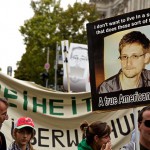A few weeks in, the Geneva agreement made between Iran and the western powers looks as something of a rather quiet rupture in what has been a thirty year status-quo. Yet, the nuclear deal could signify a potential change in the Middle East – as well as one of the biggest achievements of the Obama administration.
In short, the agreement specifies the commitments of Iranian nuclear restriction for the upcoming 6 month period. In exchange, Iran receives some alleviation of the strict sanctions imposed upon them, as well as access to certain capital assets abroad and a promise of no new sanctions upon the ones already in place.
What is not expressly addressed though, is the controversial issue of the right to uranium enrichment for peaceful purposes. In the NPT (Non-Proliferation Treaty), – for obvious reasons – nothing explicitly implies the use of nuclear energy to be illegal. Rather, what has been the point of debate for American allies – Israel and Saudi Arabia, in particular – has been that no discrimination have been made regarding Iran as somehow unique in this circumstance. The Geneva agreement effectively levels Iran with any other nation with nuclear capabilities, they claim. And this can not be tolerated.
The result has been uproar against Secretary Kerry and the Obama administration (never mind the other four permanent members of the Security Council, plus Germany and the EU). The agreement is an interim one, whose implications can be reversed as Netanyahu and his supporters in US congress gather strength before next round of negotiations.
Keeping in mind the missiles still constantly aimed at Iran from the navies in the Persian Gulf, no self-critical efforts from Israel and the Saudis are yet to be seen. Putting the fear of the remaining Iranian nuclear capacity to the side, adding that the United States for once were able to act in the Middle East without their consent, one can hope for this to be the first step towards regional nuclear disarmament.
If collective efforts from the international sphere can sustain what magnanimously and certainly prematurely has been labeled the ‘Renaissance of Diplomacy’; then a seed of peace could be planted in the otherwise bone-dry and dammed dirt of the heartland.
Partly spoiling the party, what is hailed as a victory for the US-Iranian relationship could just as easily reflect the future indifference of America towards the region as a whole: following the logic of other actions during the past years, it certainly seems plausible. Still, if long-term peace in the Middle East is the goal, few question the need for proportional sacrifice on behalf of all actors and this could be the first step for other nuclear powers in realizing that.
Text: Josef Svantesson



